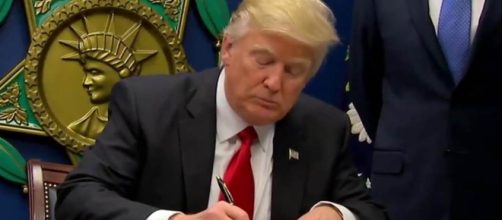Fighting small groups of terrorists is not easy. The fighters must be identified, the leadership traced and small cells of activists are particularly difficult to combat. These are the difficulties facing America in its war on Terrorism. The large armies of the superpowers are at a particular disadvantage because their tactics and training are traditionally against enemies in open warfare and experience has shown how difficult it is to fight what is known as asymmetrical warfare.
The refugee or the fighter?
#ISIS and other such groups have made such warfare even harder because they have used groups of legitimate refugees fleeing their horrors to plant not only fighters in a number of countries, but also to plant seeds of doubt in the minds of world leaders and their citizens and thus to create fear in the populations that host them.
Sadly, President #Donald Trump ’s executive order to ban migrants from seven “at risk” countries has effectively given a temporary victory to ISIS in a war that is as much psychological as it is military.
The world wide reaction against the decision, as well as ISIS’s declaration that the decision is a vindication of their struggle, has only been met by obstinacy from the Oval Office. While determination is of prime importance in this war, the leadership of the United States must understand that the road to victory is not by military strength alone, but through the minds of those that have suffered at the hands of the fundamentalists.
Chess game
The waves of people fleeing Middle East countries is clear proof that ISIS is making the local populations suffer and for this reason the Western countries, beginning with the United States, must also consider these people in their plans.
While many of the refugees will remain in their new countries of residence, there will be those who desire to return to their countries of birth. These must be a part of the long term rebuilding of the devastated countries and how they are treated as refugees will affect how the host countries are considered by future governments of these countries.
This international struggle against the fundamentalist fanatics is a complicated chess game that is and must be fought as much on images and perceptions as it is on the battle field. It will be useless winning one battle if it then creates the conditions for wars that will be even worse. Tragically over the last few years in the Middle East and Northern Africa this is exactly what has happened with international interventions that withdrew before completing the assigned task.
The “Mission accomplished” which was once uttered prematurely by President George W Bush will not be uttered once more until the superpowers, Russia and the United States, stop treating the countries involved as their pawns, or rooks, but understand that they are made up of people who are suffering and the cause of their pain is definitively removed. At the same time these people are also the ones who can give the best contribution to solving the problems that created the terrorists.

